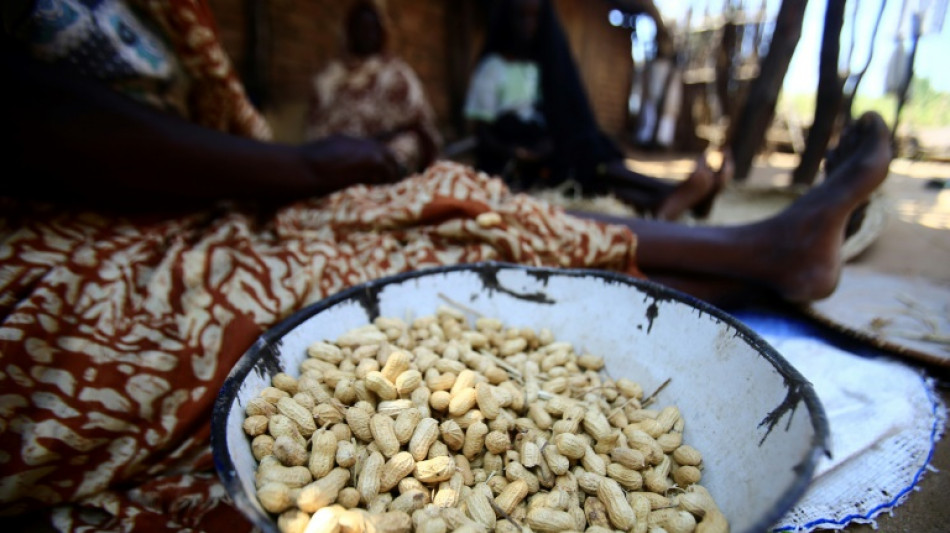
-
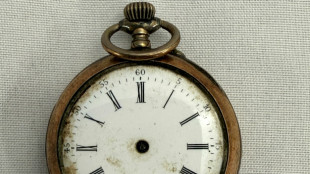 Pocket watch found on Titanic victim to go on sale in UK
Pocket watch found on Titanic victim to go on sale in UK
-
UK top court rules definition of 'a woman' based on sex at birth

-
 All Black Ioane to join Leinster on six-month 'sabbatical'
All Black Ioane to join Leinster on six-month 'sabbatical'
-
Barca suffer morale blow in Dortmund amid quadruple hunt

-
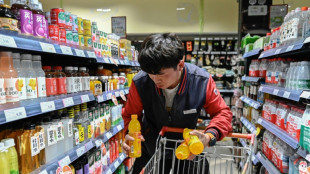 China tells Trump to 'stop threatening and blackmailing'
China tells Trump to 'stop threatening and blackmailing'
-
Iran FM says uranium enrichment 'non-negotiable' after Trump envoy urged halt

-
 Automakers hold their breath on Trump's erratic US tariffs
Automakers hold their breath on Trump's erratic US tariffs
-
Cycling fan admits throwing bottle at Van der Poel was 'stupid'

-
 Troubled Red Bull search for path back to fast lane
Troubled Red Bull search for path back to fast lane
-
China's forecast-beating growth belies storm clouds ahead: analysts

-
 ASML CEO sees growing economic 'uncertainty' from tariffs
ASML CEO sees growing economic 'uncertainty' from tariffs
-
Heineken beer sales dip, tariffs add to uncertainty
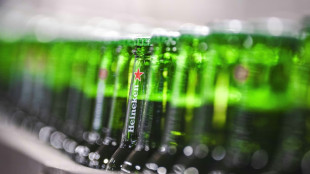
-
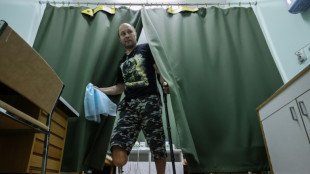 Rehab centre for Russian veterans from Ukraine fills up
Rehab centre for Russian veterans from Ukraine fills up
-
Dutch flower industry grasps thorny pesticide issue

-
 Solar boom counters power shortages in Niger
Solar boom counters power shortages in Niger
-
Malnourished children in Afghanistan at 'high risk of dying' without US aid

-
 Skating comeback queen Liu says she can get even better for Olympics
Skating comeback queen Liu says she can get even better for Olympics
-
'Let's rock': world music icon Youssou N'Dour back on the road

-
 Mackerel and missiles: EU-UK defence deal snags on fish
Mackerel and missiles: EU-UK defence deal snags on fish
-
Istanbul's Hagia Sophia prepares for next big quake

-
 'Magician' Chahal casts spell with IPL heroics
'Magician' Chahal casts spell with IPL heroics
-
WHO countries strike landmark agreement on tackling future pandemics

-
 Kerr salutes Harvard defiance over Trump after Warriors win
Kerr salutes Harvard defiance over Trump after Warriors win
-
Canada party leaders hold high-stakes debate two weeks from vote

-
 As war grinds on, Ukraine's seniors suffer
As war grinds on, Ukraine's seniors suffer
-
ASML CEO sees 'increased macro uncertainty' from tariffs

-
 Pope leaves faithful guessing over Easter appearances
Pope leaves faithful guessing over Easter appearances
-
Butler, 'Batman' Curry shine as Warriors down Grizzlies to reach playoffs

-
 Skating 'Quad God' Malinin ready for Olympic favourite tag
Skating 'Quad God' Malinin ready for Olympic favourite tag
-
Toppmoeller has ascendant Frankfurt challenging their limits

-
 Cambodia's Chinese casino city bets big on Beijing
Cambodia's Chinese casino city bets big on Beijing
-
Vespa love affair: Indonesians turn vintage scooters electric

-
 Europe seeks to break its US tech addiction
Europe seeks to break its US tech addiction
-
Long-abandoned Welsh mine revived as gold prices soar

-
 UK's top court to rule on how to define a 'woman'
UK's top court to rule on how to define a 'woman'
-
WHO countries reach landmark agreement on tackling future pandemics

-
 Stocks struggle again as Nvidia chip curb warning pops calm
Stocks struggle again as Nvidia chip curb warning pops calm
-
China's economy beats forecasts ahead of Trump's 'Liberation Day'

-
 China's economy beat forecasts in first quarter ahead of Trump's 'Liberation Day'
China's economy beat forecasts in first quarter ahead of Trump's 'Liberation Day'
-
Trump orders critical minerals probe that may bring new tariffs

-
 Onana faces date with destiny as Man Utd chase Lyon win
Onana faces date with destiny as Man Utd chase Lyon win
-
Lessons in horror with Cambodia's Khmer Rouge tribunal

-
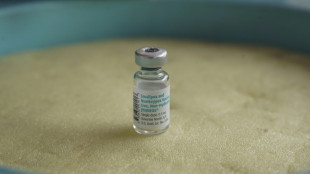 Pandemic agreement: key points
Pandemic agreement: key points
-
Paramilitaries declare rival government as Sudan war hits two-year mark

-
 Landmark agreement reached at WHO over tackling future pandemics
Landmark agreement reached at WHO over tackling future pandemics
-
'La bolita,' Cuban lottery offering hope in tough times

-
 'Toxic beauty': Rise of 'looksmaxxing' influencers
'Toxic beauty': Rise of 'looksmaxxing' influencers
-
Facebook added 'value' to Instagram, Zuckerberg tells antitrust trial

-
 Trump signs order aimed at lowering drug prices
Trump signs order aimed at lowering drug prices
-
Paramilitaries declare rival government as Sudan war enters third year


Adding peanuts to young children's diet can help avoid allergy: study
Including peanuts in children's diets early in life could help stave off allergies against the legume, which can be fatal and affect swathes of youngsters globally, according to a new study Friday.
Researchers found that introducing peanut products to babies and infants, and gradually increasing exposure, led to greater tolerance for the common allergen.
The peer-reviewed study, published in The Lancet, involved 146 peanut-allergic children aged between zero and three over two-and-a-half years.
Of the group, 96 were given peanut protein powder every day, with the dose increasing progressively to the equivalent of six peanuts. The other children received a placebo of oat flour.
Twenty of the children who received peanut powder showed allergy remission, meaning no allergic reaction occurred six months after the therapy ended.
One child in the placebo group showed remission.
Six months after the treatment, the children in remission could tolerate a dose equivalent to 16 peanuts.
An additional 20 children who received peanut powder were considered 'desensitised', meaning they had a higher allergic threshold but were not considered in remission.
These children could tolerate a dose equivalent to between six and 12 peanuts six months after the treatment ended.
The youngest children in the study experienced remission the most often, and the best results were in those under 12 months.
"Very early interventions may provide the best opportunity to achieve remission", said co-author Stacie Jones.
- 'Considerable burden' -
Peanut allergies affect two percent of children in Western countries, according to the study, and can last a lifetime.
Affected children must avoid eating peanuts and have self-injectable adrenaline available to fight allergic shocks, which can be fatal if they are accidentally exposed.
Exposure can even occur when a child hugs someone who has just consumed peanuts.
"There are no treatment options, resulting in a considerable burden on allergic children and their caregivers to avoid accidental exposure," said co-author Wesley Burks.
"In severe cases, this can restrict peanut-allergic children's freedoms, particularly when it comes to navigating daycare or schools and public spaces where access to a safe diet is in jeopardy," he added.
Previous studies have produced similar results but the length of the latest studies makes it unique.
Although it provided important results, it may not reflect the behaviour of the children's bodies in real-world conditions.
The study was conducted under close medical supervision, and adrenaline injections were administered on 21 children during the trial.
O.Lorenz--BTB
